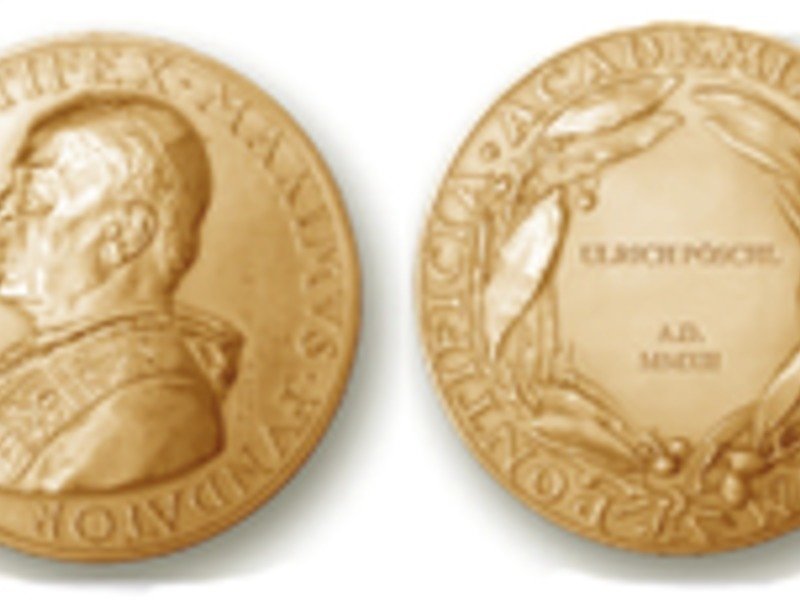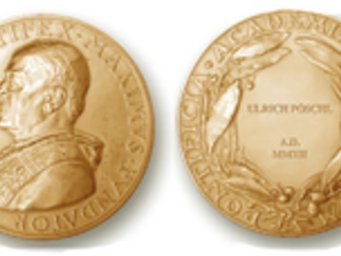Pontifical award for Max Planck Chemist from Mainz
Ulrich Pöschl is awarded the Pius XI Gold Medal of the Pontifical Academy of Sciences
Shortly after starting as a new director at the Max Planck Institute for Chemistry Dr. Ulrich Pöschl has already received a unique honor: On Wednesday November 7th, 2012 the chemist will be awarded the Pius XI Gold Medal of the Pontifical Academy of Sciences in the Vatican. The award merits Pöschl´s contributions to scientific progress, especially on the role of chemistry in atmospheric, climate and health research.

“The Pius XI Gold Medal is not only a special honor but also an encouragement for me and my team”, stated Pöschl on the occasion of the award. “I hope that the future success of our interdisciplinary research approach will meet the expectations of the Academy”, he continued. Since October 1st, 2012 the 43-year-old scientist has lead the newly established Department of Multiphase Chemistry at the Max Planck Institute for Chemistry in Mainz. Multiphase Chemistry deals with chemical reactions, transport processes and transformations between solids, liquids and gases from the molecular level to global biogeochemical cycles, climate and health effects. Examples include the effects of aerosols on the formation of clouds and precipitation, and the influence of air pollutants such as ozone, nitrogen oxides and soot on allergy and respiratory diseases.
The Pius XI Gold Medal is awarded every two years to outstanding researchers younger than 45 years for their promising research approaches. Among the previous winners are the astrophysicist Steven A. Hawking and Nobel laureate in chemistry Jean-Marie Lehn.
The roots of the Pontifical Academy of Sciences date back to the 17th Century. In 1936, the Academy was renewed and internationalized by pope Pius XI to promote the progress and freedom of sciences and to support the study of related epistemological questions and issues. Members include several outstanding scientists of the 20th Century, including Nobel Prize winners such as Ernest Rutherford, Max Planck, Niels Bohr, Otto Hahn, Gerhard Ertl, Manfred Eigen, Paul Crutzen and Mario J. Molina. The Pontifical Academy is also concerned with socially controversial issues such as stem cell research or genetic engineering.
